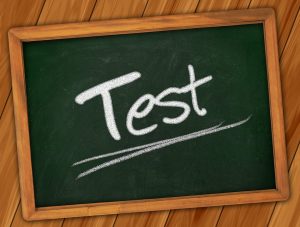 As you finalize your courses for next term, you might want to reconsider two questions about assessment:
As you finalize your courses for next term, you might want to reconsider two questions about assessment:
- How much should my students be assessed?
- How much should I grade?
The immediate answer to both might be: as little as possible! However, the well-considered answer would be: a lot of student assessment with only a little high-value professor grading.
How is this possible? Think back to a time (before graduate school) when you were a student and had an assignment that was graded in such a way that it became a turning point in your academic life. Can’t? Well, that is likely because research shows the way students improve academically is through the cumulative feedback, frequent grading, and the rating of performance over time.
Assessment is most effective when it provides a consistent message about standards and practices through frequent and timely feedback that shapes academic behavior by preventing students from repeatedly making the same mistakes.
When you formulate your assessment strategy, do not think about what is common or traditional. Instead, make a list of 3-5 activities that improve student performance. Create an assessment program that does an effective job of shaping student behavior through automation of simple tasks. Reserve your personal grading intervention for the higher-value academic tasks.
|
Student Goal
|
Student Task
|
Goal for the Student
|
Professor Effort to Grade
|
|
Read
|
Take weekly MC/TF online tests on the assigned reading.
|
To improve reading skills by holding students to recommended 150,000 words per term.
|
Zero. Set up automated online grading.
|
|
Study
|
Submit weekly reading study guides of key terms online.
|
To conceptualize readings into small chunks that prepare for assessment.
|
Zero. Students are granted participation points for completing assignment.
|
|
Analyze/Discuss
|
Take up to 8 in-class poll questions online about lectures during class. Submit small group problems online.
|
To collaborate through active discussion of the material in small and large groups.
|
Zero. Use on-line polling to collect and update the gradebook automatically. Give participation points for problems.
|
|
Write
|
Formative assessment: Submit 3 parts of the writing process of the paper during in the term.
|
To systematically build an analytical paper and correct errors in the writing process before they accumulate into incoherent writing.
|
Grade 1.5 hours per student for the term, divided into 3 grading sessions.
|
|
Research
|
Project-based learning: Submit 3 parts of a research process in the term and works with a research team.
|
To obtain information from varied sources about a topic of high interest to the research team: collaborate, plan, discuss, analyze, and present.
|
Grade 1 hour per group for the term. Up to 3 collaboration sessions overseen in class. Teams present online or in finals week.
|
|
Student Goal
|
Student Task
|
Goal of the Student
|
Professor Effort to Grade
|
|
Listen
|
Write 3-5 pages of information in a blue book in class.
|
To regurgitate what the professors taught or what the student read.
|
1.5 hours of repetitive grading per student, divided over 2-3 sessions in the term.
|
|
Write
|
Write 5-10 page paper to a writing prompt and submit at end of term.
|
To demonstrate the state of the student’s writing skill.
|
1 hour per student, possibly 1.5 hours to correct the writing of weaker students.
|
